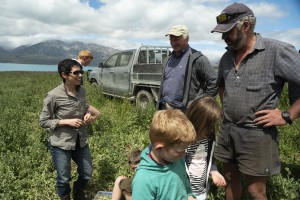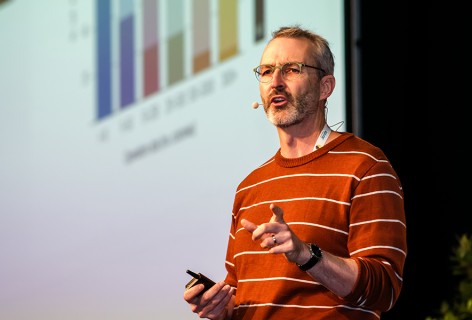Transformative change involves wholly new systems, processes or locations for activities, for instance when a farmer converts from one land use to another, e.g. from sheep and beef to forestry or from growing fruit to growing wine grapes. Transformative change differs from incremental change in which livestock farmers change grazing practices and horticulturalists shift from one apple variety to another.
The Survey of Rural Decision Makers (SRDM) is the leading source of information about New Zealand’s primary sector. Conducted every 2 years since 2013, thousands of farmers, foresters, growers, and lifestyle block owners complete the survey online and the results are widely disseminated among industry and government bodies to help inform future policy and decision-making.
In 2017, the survey included specific questions about farmers’ preferences for risk, their patience, their indebtedness and their beliefs about changing climate. The responses from 4,458 participants enabled researchers from Manaaki Whenua, the University of Vermont and the University of Otago to robustly identify factors that explain farmers' willingness to undertake transformative changes vis-à-vis incremental change.
The analysis showed that transformative land-use changes are rare in New Zealand – only around 15% of farmers had implemented any transformative changes in the past 10 years, and only 11% intended to make any such changes in the next 10 years. Incremental changes were much more common. Risk-takers were, not unexpectedly, more likely to undertake transformational change – and disproportionately so if they also believe in changing climate.
However, patience – i.e. being willing to wait longer for an investment to pay off – was not associated with willingness to undertake transformative change. High indebtedness was often correlated with having invested in on-farm changes but also signalled a potential limited capacity to actually implement changes.
The socioeconomic challenges of making transformative changes on-farm may be exacerbated in New Zealand, which has the lowest level of agricultural subsidies in the OECD, where subsidies and incentive programmes in agriculture were abolished in 1984 and where economic assistance for transformation is largely unavailable. The researchers suggest that additional forms of financial and technical assistance may need to be considered to enable the sector – especially older, more risk-averse farmers and growers – to navigate the upcoming challenges of climate change, and technological and economic changes in the years ahead.


